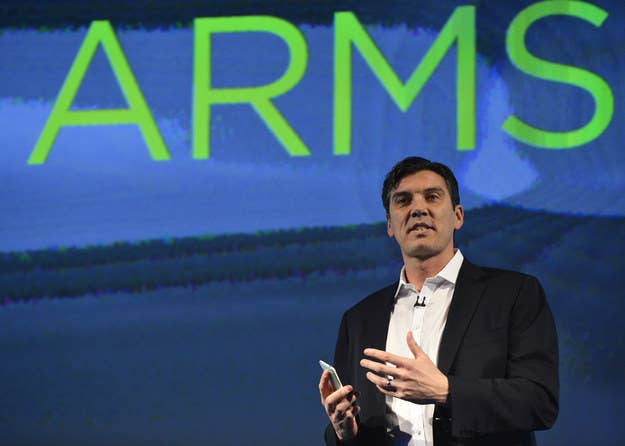
AOL has only had one boss since it was spun off in the wake of 1999's disastrous Time Warner merger: Tim Armstrong.
The former Google executive has been held responsible for everything AOL has and hasn't done since becoming an independent company in 2010: pouring money into Patch and then decimating it, buying the Huffington Post, fighting off a proxy battle with hedge fund Starboard Value, firing an employee during an all-company conference call, and entertaining constant speculation over the future of the business.
All the while, he has been steadily building up his own personal stake in the company that is so thoroughly identified with him, mainly through his stock-based pay, but also by investing plenty of his own money.
In 2010, Armstrong owned just over 1 million shares of AOL, about 1% of the company. Today, he controls over 5.5 million shares, including options, which at today's price of $50.52 are worth $280 million. That's up from holdings worth $27.5 million in March 2010.
He aggressively bought AOL shares: After the company's stock declined following the 2011 purchase of the Huffington Post, Armstrong bought 477,000 shares for about $10 million. Armstrong and his family investment company bought around 519,000 shares in May, 2010 for just under $12 million; all told, he spent over $21 million of his own money on shares that are worth about $50 million today.
AOL stock has been on something of a tear recently, up almost 10% this year and over 106% in the last five years, outpacing the broader S&P 500, which is up 79% over the same period.
Alongside a healthy profit on his investment, Verizon's acquisition of AOL gives Armstrong a clear sense of his future running AOL within a well-capitalized corporation that wants both the video and content AOL produces, along with the advertising technology needed to make money from it.
It would have been very different had AOL pursued the much-rumored, much-denied, and hedge-fund encouraged combination with Yahoo. There, Armstrong would have needed to deal with stiff internal competition from a whole range of executives whose advertising, advertising technology, and media businesses overlapped with his own.
With Verizon, he gets a company that has high-speed internet and data pipes and customers that want video on their phones, TVs, and computers. "The principal interest was around the ad tech platform that Tim Armstrong and his team have done a really terrific job building," Verizon's Executive Vice President John Stratton said at a conference today.
The big remaining question for AOL and Armstrong is not its ultimate destination, but its ultimate composition. Sources told BuzzFeed News on Tuesday that the company is likely to keep some of its well-known media properties, including tech sites Engadget and TechCrunch. But the Huffington Post, its biggest and most expensive foray into the content business, could be spun off.
Re/code reported Tuesday that the company was in talks before the announcement of the Verizon deal to spin off the Huffington Post, possibly to the publisher Axel Springer. The German print giant is building up an impressive portfolio of digital media investments, including a joint venture with Politico to publish Politico Europe and stakes in Business Insider, Ashton Kutcher's content startup A Plus, the youth-focused news site Ozy, and the reading app Pocket.
While the Huffington Post was a defining acquisition for Armstrong that demonstrated the company's commitment to quality content, he has not been afraid to cut off troubled investments, like when he drastically scaled down Patch in 2013 with hundreds of layoffs. Whatever form AOL takes under Verizon, and whatever happens to the Huffington Post, Armstrong looks set to remain the one making the big decisions.
